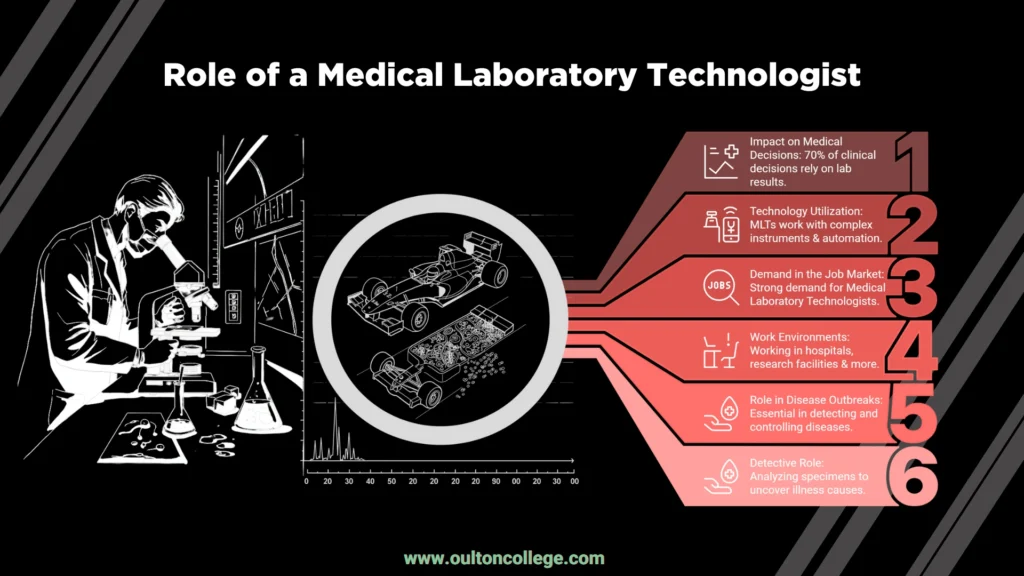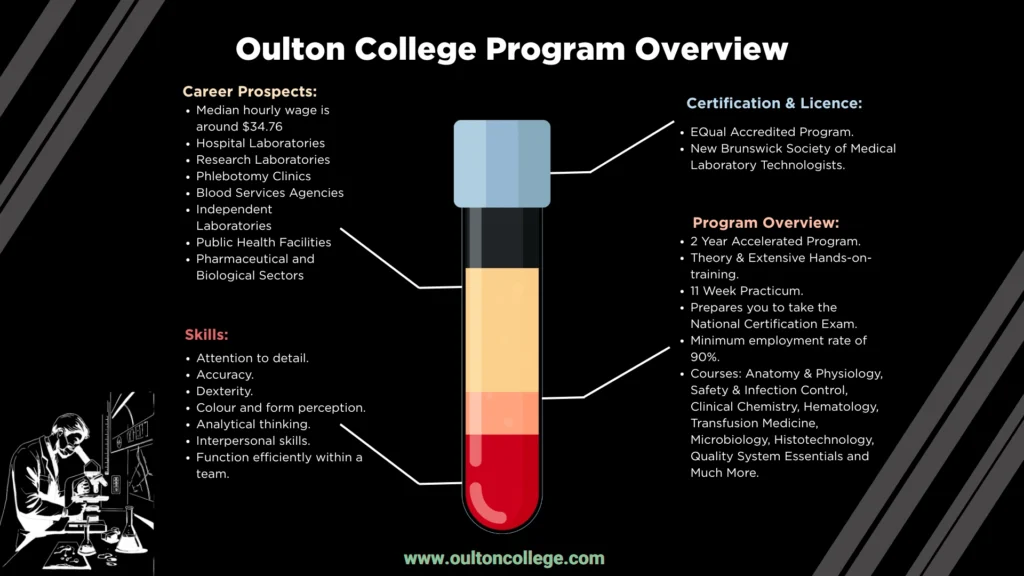F1 Precision Meets Medical Marvels

The parallels between the intense world of Grand Prix racing and the vital work of medical laboratories are more striking than you might think. Just as F1 teams rely on meticulous analysis to keep their high-performance machines running safely and competitively, the healthcare system depends on the expertise of Medical Laboratory Technologists to diagnose, monitor, and prevent diseases in the human body. Both worlds understand that precision in the lab translates directly to critical real-world outcomes.
Diagnosing: Uncovering the Root Cause
In the fast-paced environment of F1, lab technicians at the trackside meticulously analyze fuel and oil samples. Their work is akin to detectives, examining the molecular makeup of these vital fluids. A sudden spike in heavy metals in the oil, for instance, can be an early indicator of engine wear or a component malfunction, signaling a potential catastrophic failure. This early diagnosis allows engineers to take preventative action, potentially saving millions in repairs and, more importantly, ensuring the driver’s safety.
Similarly, Medical Laboratory Technologists are the detectives of the human body. They conduct a wide range of laboratory tests and procedures on biological specimens such as blood, urine, and tissues to assist physicians in diagnosing disease. By analyzing these samples, MLTs can identify the presence of pathogens, abnormal cells, or chemical imbalances that indicate illness. This crucial diagnostic work provides physicians with the information needed to understand the patient’s condition and determine the appropriate course of treatment.
Monitoring and Preventing
Medical Laboratory Technologists (MLTs) play a crucial role in detecting patterns within the population related to environmental and habitual factors affecting health through disease surveillance, data analysis, and public health initiatives. For instance, identifying a cluster of elevated lead levels in children in a specific area can trigger investigations into potential environmental sources like lead paint or contaminated water, leading to remediation efforts and public awareness campaigns.
Various indicators that can be linked to environmental and habitual factors, such as:
- Environmental toxins and heavy metals like blood lead: MLTs can identify elevated levels of harmful substances that may indicate environmental exposure.
- Antibiotic resistance patterns: Monitoring resistance to antimicrobial medications can reveal trends related to antibiotic usage habits within a population.
- Prevalence of infectious disease markers: Tracking the incidence and characteristics of infectious agents can help identify potential environmental sources or behavioral patterns contributing to their spread.
- Markers of chronic diseases: Reveal geographical or demographic clusters that might correlate with environmental factors or lifestyle choice.
The Power of Regular Checks
F1 teams regularly sample fuel and oil before and after every session and every time the engine is turned on. This continuous monitoring allows them to track the engine’s condition, detect even minor deviations from the norm, and predict potential problems before they escalate into major failures. This proactive approach to maintenance and early detection of faults is essential in a sport where every fraction of a second counts and reliability is paramount.
In healthcare, Medical Laboratory Technologists play a vital role in monitoring the progression of diseases and the effectiveness of treatments. Regular lab tests, such as blood glucose monitoring for diabetes or viral load testing for HIV, provide crucial data that helps physicians adjust treatment plans and prevent disease complications. Furthermore, MLTs are involved in preventing the spread of infectious diseases through accurate and timely testing, disease surveillance, and the development of quality control programs to ensure the reliability of diagnostic tests during outbreaks.
The Marvel of the Sample
It is truly remarkable that the analysis of a simple fluid like fuel or oil from an F1 car can reveal so much about the intricate workings within the engine. These samples hold a wealth of information about the engine’s health, potential wear and tear, and even the effectiveness of the lubricants being used. This information directly informs critical decisions that impact the car’s performance and the safety of the driver.
Equally astonishing is what Medical Laboratory Technologists can discern from analyzing human blood, urine, and other bodily fluids. These samples can reveal the presence of infections, genetic markers, indicators of organ function, and the body’s response to disease or treatment. The information gleaned from these analyses is fundamental to understanding the complex processes occurring within the human body and guides life-saving medical interventions. It’s estimated that 70% of important clinical decisions are based on laboratory results.
Saving Millions: The High Stakes of Accuracy
In the high-stakes world of F1 racing, a catastrophic engine failure during a race can cost a team millions of dollars in repairs, lost points, and potential penalties. The meticulous work of F1 lab technicians, by identifying potential issues early, directly contributes to preventing these costly failures and ensuring the safety of the driver, which is priceless.
Similarly, in healthcare, the accurate and timely work of Medical Laboratory Technologists is crucial for saving lives and preventing costly medical complications. Early and accurate diagnosis of diseases like cancer, heart disease, and infectious illnesses allows for prompt treatment, improving patient outcomes and potentially reducing the need for more extensive and expensive interventions later on.
Furthermore, by ensuring the quality and reliability of tests, MLTs contribute to the overall efficiency and cost-effectiveness of the healthcare system. For example, the introduction of cardiac troponin testing has been shown to impact patient management by enabling early discharge from the hospital and resulting in significant cost savings.
The Vital Role of Medical Laboratory Technologists
Medical Laboratory Technologists (MLTs) are dedicated healthcare professionals who provide accurate and timely laboratory test results to physicians to help make critical medical decisions. They perform routine and specialized test procedures using manual and automated techniques, prepare specimens for analysis, analyze specimens and validate results using established protocols, and use and troubleshoot complex instruments. MLTs work in various specialties, including clinical chemistry, microbiology, hematology, histotechnology, and immunohematology. They adhere to strict protocols and quality assurance measures to ensure the reliability of their findings.

Unseen Heroes: A Shared Dedication
Ultimately, the parallels between the F1 lab technician and the Medical Laboratory Technologist highlight a shared dedication to precision and the critical importance of their often-unseen work. Both operate in high-pressure environments where accuracy and reliability are paramount. Just as the F1 lab ensures the optimal performance and safety of a racing machine, the medical laboratory provides the essential information that underpins the health and well-being of individuals and communities. Both are indispensable parts of their respective high-stakes systems, working diligently behind the scenes to deliver results that truly matter.Book an Admissions Meeting Today!
Remember that by investing in your education, you are investing in your future, gaining the skills and connections you need to thrive in your career and life.
*Please note that information may be subject to modifications. We encourage current and prospective students to visit the websites in order to obtain the most recent information.

